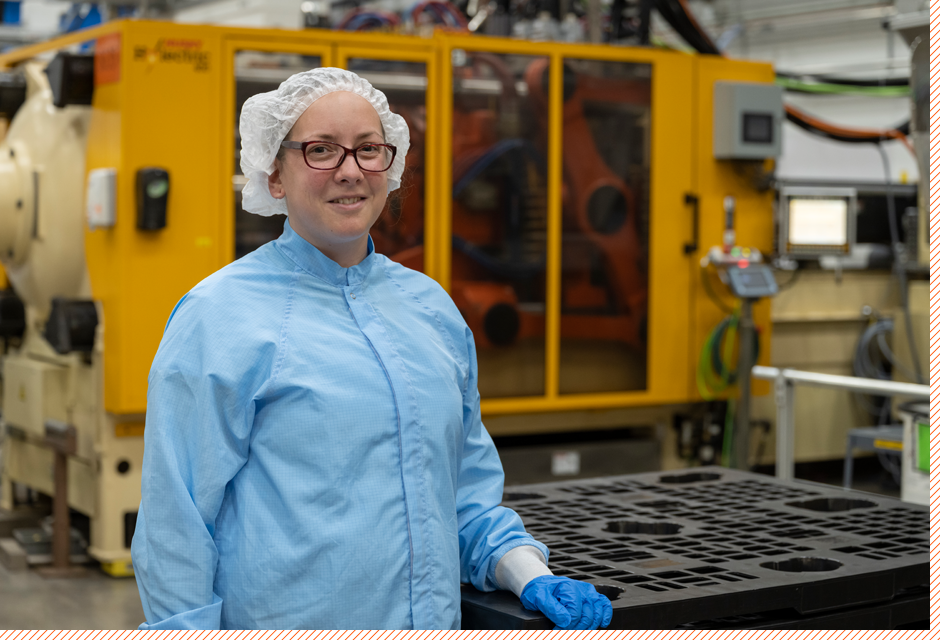How Turnkey Manufacturing Can Increase Speed to Market

Dynamic, fast-growing brands that have exploded into the market over the last decade with their fulfillment of niche needs, premium price points, and loyal customer base have become known within the customer goods arena as “insurgent brands.” These disruptive companies are a force to be reckoned with and have gobbled up growth and leveraged their start-up sizes to take risks and target specific consumer bases within larger categories.
Although insurgent brands have taken the consumer industry by storm through the last several years, the projected growth of market share is expected to level off in the near future. Bain & Company predicts their market share will reach and level out at 35% by the year 2025. This is still an astounding number, but the increase is looking to stabilize after the explosion seen since around the year 2012. As this leveling of the CPG playing field occurs, it’s time for incumbent brands to take a page or two out of the insurgent playbook and apply some of the strategies of Justin’s peanut butter and Harry’s razors of the world.
In order to stay competitive, incumbent brands should consider revisiting their branding and customer messaging, create more lean and nimble ways of working, increase speed to market, and level up innovation.
Honing the Brand Story
Identifying real customer needs and establishing an authentic branding message and productization that meets those needs is an area where insurgent brands are excelling and incumbent brands can improve. Don’t rely on reputable, big-name recognition to seal the deal anymore. Incumbent brands can keep up the pace and get ahead by turning inward and refocusing on what makes their messaging and product unique, better than the competition, and more relevant today than it was a year ago, or five or ten years ago.
Reviving that entrepreneurial mindset and drives insurgent brands can go a long way toward sparking new ideas and connections. Veteran companies cannot afford to shy away from rebirth and redirection in this post-digital, post-billboard world.
Becoming Agile
Without even applying the existing frameworks out there that can lean out and incorporating agility across departments, insurgent companies are already agile by nature. They don’t have the bureaucracy to break through, the communication barriers, or the layers within the organizational charts that separate a larger company from its consumer. Smaller, start-up businesses are light in assets and heavy in direct communication and straightforward action and cooperation.
Contract manufacturing companies like Tessy Plastics practice lean manufacturing in order to work more nimbly and provide clients with an increase in speed to market. When asked about how lean manufacturing and the option of a turnkey solution, Mark Towers, Director of Quality, had the following to say about how Tessy helps keep incumbent brands competitive in this new and leaner landscape that has been sculpted by insurgent brands:
“Tessy is always evaluating their manufacturing practices to identify efficiencies and areas for improvement in our processes. Tessy employs numerous six sigma-trained specialists to uncover areas where we can streamline our manufacturing. Through these efforts, we are able to continuously improve our customers’ cost over time, which allows them to compete in extremely price-sensitive markets.”
Access to these specially trained team members is just one of the reasons incumbent brands might want to take a closer look at a turnkey partner solution where CPG companies can outsource the process from product design to completion in order to keep up with the ever- changing tide and expectations being set and standardized by the blueprints that insurgent brands are creating.
Increasing Speed While Maintaining Quality
Previous research conducted has uncovered that insurgent brands are three times faster at launching new product ideas (getting them from that paper napkin to the shelf of a store) than larger competing brands. Tessy is in a prime position to help incumbent companies increase their speed to market without compromising quality. If all parts of the manufacturing process can be completed through one company, this timeline is expedited substantially.
Mark Towers said, “Tessy is able to maintain quality while also focusing on speed by engineering/designing tooling and automation assembly equipment specific to the product design.” Manufacturers like Tessy spend their time perfecting productivity and technology so their clients can focus on strategy and sales, creating the sort of symbiotic relationship that breeds innovation and success.
Leveling up Innovation
With competition across the industry spectrum constantly being flooded with the “next big thing.” continuous innovation is key for incumbent brands. Research and development can be a costly and lengthy process, but one way companies can stay on top of trends and technology when it comes to product development is to entrust R&D to a contract manufacturer that is already equipped to undertake the endeavor.
Tessy Plastics stays innovative by leveraging its own R&D team to identify new technologies that can be applied to their engineering quality and manufacturing.Mark Lattimore, the Director of Research & Development at Tessy explains, “Tessy will invest in these new technologies for the purposes of testing them to determine feasibility for the intended production application.” When companies partner with Tessy on new product creation, they get to bypass the time and money it takes to test various new technology and go straight to product development.
By collaborating with a contract manufacturer that can provide a turnkey solution from product idea to retailer shelf, incumbent consumer goods companies can make great strides toward disrupting a platform insurgent brands have been standing on for the last few years. Additionally, through telling a compelling and personalized story, approaching organization and processes with agility, large, legacy companies can channel their inner small business to appeal to customers who want a more intimate and innovative experience. As the growth of insurgent brands levels out, larger, more veteran consumer goods companies will be primed to climb again and position themselves for success if they incorporate these lessons and outsource the right tasks to a trusted partner.
